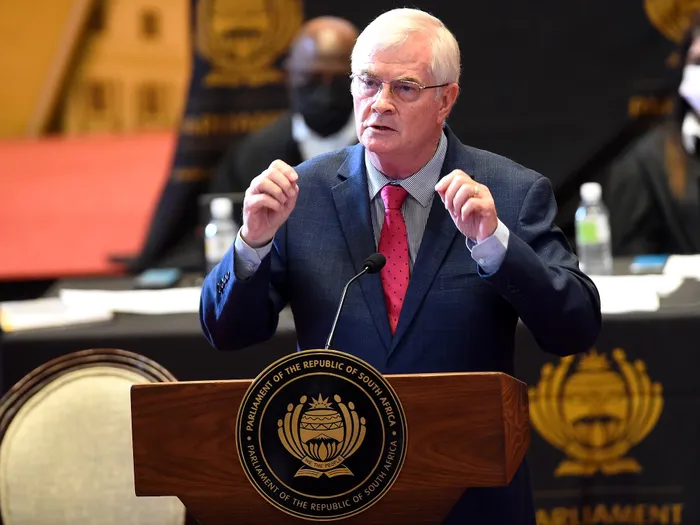
Correctional Services Minister Pieter Groenewald has ignited after suggesting South Africa consider bringing back corporal punishment for petty criminals who can’t afford bail
Image: Independent Media Archives
Should a person who steals ten loaves of bread be sent to prison for years, or given a painful walloping and sent home?
That’s the debate Correctional Services Minister Pieter Groenewald has ignited after suggesting South Africa consider bringing back corporal punishment for petty criminals who can’t afford bail. Speaking during a parliamentary discussion on the country’s 2025 correctional services budget, Groenewald said the justice system was collapsing under the weight of overcrowded prisons, and bold ideas were needed.
“There are people sitting in prison for stealing food,” Groenewald said. “Some wait up to three years for sentencing. Isn’t it time we asked ourselves — should we bring back corporal punishment?”
He was referring to more than 2,500 detainees who are stuck in prison simply because they can’t afford a bail of R1 000 or less.
These are often people accused of small, non-violent crimes. And they’re part of a bigger crisis: South Africa has over 104 000 people in prison, in facilities built for far fewer. Beds are limited. Staff is stretched thin.
And many of those awaiting trial don’t need to be behind bars at all. But Groenewald’s solution, physical punishment, has divided the country.
For some, the idea is too close to South Africa’s dark history. Human rights groups and political opponents quickly pushed back, saying the suggestion reminded them of the harsh justice handed out under apartheid, where the state used caning and other physical punishments as tools of control.“
This isn’t just about crime and punishment,” said a human rights lawyer. “This is about dignity. This is about a state choosing whether to treat people as human beings or not.”The mention of corporal punishment immediately brought comparisons to apartheid’s security forces, who were notorious for using violence under the name of justice.
Others in Parliament offered different solutions. Rise Mzansi MP Makashule Gana was blunt in his response: “It’s not corporal punishment we need — it’s community service.” Gana called for a system that puts petty offenders to work in their communities.
“Let them clean the streets, repair parks, and plant gardens. Make them contribute, not suffer,” he said. Marlon Daniels, an MP for the Patriotic Alliance, argued that Groenewald wasn’t going far enough.
“Forget lashes,” he said. “Let’s bring back the death penalty for murderers. You kill someone, you must be prepared to be killed.”
While many dismissed his comments as extreme, they reveal how frustrated some leaders are with South Africa’s crime levels — and how wide the gap is between different visions for justice. Groenewald has also suggested sending foreign prisoners back to their home countries to serve out their sentences.
With around 24,000 foreign nationals in South African prisons — costing taxpayers R11 million a day — he says it’s a practical way to ease pressure on the system.
Groenewald’s suggestions, though controversial, have forced the country to face a hard truth: South Africa’s prisons are in crisis. Whether it’s corporal punishment, deportation, or community service, something must change.